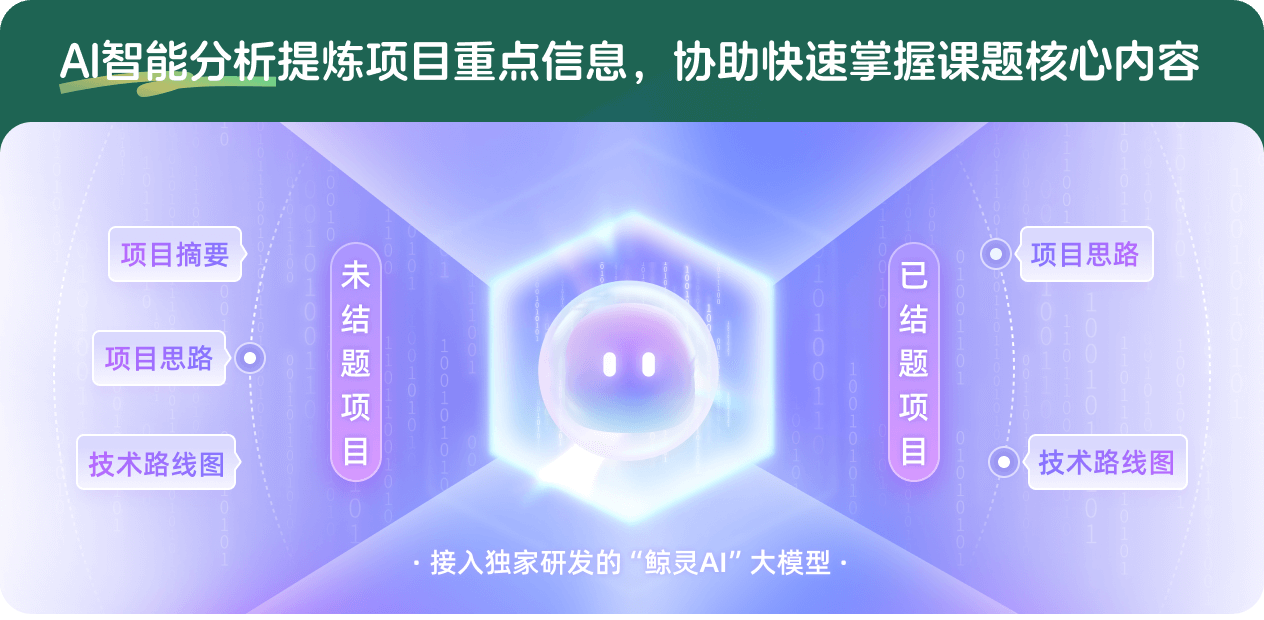硅砂表面多孔SiO2包覆层的构建及其富集废水中离子用于玻璃的着色与诱导析晶
项目介绍
AI项目解读
基本信息
- 批准号:51372102
- 项目类别:面上项目
- 资助金额:80.0万
- 负责人:
- 依托单位:
- 学科分类:E0210.无机非金属类生物材料
- 结题年份:2017
- 批准年份:2013
- 项目状态:已结题
- 起止时间:2014-01-01 至2017-12-31
- 项目参与者:张维娟; 赵燕玲; 宋廷寿; 曲慧; 段惠敏; 张晓剑;
- 关键词:
项目摘要
Absorbents can effectively remove hazardous ions from waste water. However, the used absorbents and the ions adsorbed therein finally turn into solid waste and another source of pollution. In this project, we are going to construct porous silica coating on the surface of silica sand, which is the main raw material for glass production. The route for the construction of the porous silica coating layers will include coating the silica sand with water glass followed by acid treatment, in-situ polymerization of silanes or the hydrolysis and condensation of silicon alkoxides on the surface of the sand. After the surface functionalization of the pores, the coated silica sand will be applied in removing hazardous ions from waste water. Then, the used sand absorbents will be collected and applied in the preparation of glasses. In the meantime, hazardous ions will turn into colorants and nucleating agents for the production of color glasses and bulk-nucleated glass-ceramics and can be permanently immobilized in the chemically stable glasses. By this way, the pollution of some ions in waster waters could be solved quite consummately. The research will mainly focus on the development of methods and media for coating silica sands with porous silica layers. The influences of the modification of silica sands on their filtration performance and on the glass batch preparation as well as the glass melting process will be investigated. The behavior and mechanism of ion adsorptions by the modified silica sand from waste waters will be studied. The colorization or inducing crystallization effects of Cr, Cd, Co, Cu, Ni, Ti, F or[PO4]3- ions which are adsorbed on the modified silica sands will be evaluated and summarized. The results will provide new ways for the modification of silica sand as well as theoretical guidelines for the reutilization of disposed silica sand absorbent and the application of hazardous ions from waste water in the glass colorization and induced crystallization.
吸附剂可有效脱除废水中有害离子,但吸附剂连同其吸附的离子又成为固体废弃物污染源。项目拟以生产玻璃的最主要原料硅砂为基础,通过水玻璃包覆结合酸处理、硅烷原位聚合、硅醇盐水解缩聚等途径在硅砂表面构建多孔SiO2包覆层,对孔表面进行功能化修饰后用于富集废水中有害离子。回收的硅砂作为玻璃原料,同时废水中有害离子转化为颜色玻璃及微晶玻璃所需的着色剂和晶核剂,并永久固化于化学稳定性高的玻璃中,较完善地解决废水中一些离子的污染问题。重点研究硅砂表面多孔SiO2包覆层的构建方法与体系、改性硅砂的过滤性能及其作为玻璃原料对配合料制备与熔化的影响、改性硅砂富集废水中有害离子的行为、机理;评估从废水中富集的Cr、Cd、Co、Cu、Ni、Ti、F、[PO4]3-等离子使玻璃着色或发生诱导析晶的效果,总结其一般规律。研究结果将提供硅砂改性新方法,为废硅砂吸附剂的再利用及废水中离子用于玻璃着色和诱导析晶提供理论指导。
结项摘要
吸附剂可用于废水的净化处理,其使用方便,成本较低;使用过的吸附剂可经过反冲或化学洗提后有限次地再利用,但吸附能力下降,终将连同其吸附的有害物质一起变为固体废弃物而形成二次污染源,成为业界的一大难题。本项目通过精心设计具有特征成分与结构的吸附剂,在有效净化废水的同时,实现废吸附剂及其吸附离子的固化及再利用。实验指出四种玻璃生产用硅砂在碱性条件下的水热溶解液作为制备多孔SiO2的硅源具有普适性;发明了三种方法使用不同的硅源在硅砂表面构建多孔SiO2包覆层,并对孔表面进行氨基功能化修饰,获得比面积是原硅砂数十至数千倍、吸附金属离子能力大幅提升的包覆及改性硅砂,分析了影响包覆层形成与表面积的因素及包覆层的形成机理;将改性硅砂用于静态或动态吸附水中(包括Cr3+, Cr6+, Cu2+, Cd2+, Ni2+, Co2+,Zn2+及Cr3+与Cu2+、)及实际废水中的有害离子(Cr6+、Fe3+/Cu2+),取得良好效果,详细研究了pH、初始离子浓度、吸附剂用量、吸附温度及时间、流速对改造后硅砂吸附水中不同离子的影响,分析了吸附等温线及动力学模型。因硅砂本身在水处理中广泛应用,因此改造后的硅砂易在现有水处理的工艺及条件下使用。另一方面,表面含多孔SiO2包覆层及硅烷改性的硅砂不会向玻璃中引入杂质成分,颗粒等物性也未有明显改变,因此完成过滤废水任务的废弃的硅砂吸附剂仍可作为玻璃原料再利用,同时,其从废水中富集的有害离子就可转化为颜色玻璃的着色剂,如利用从实际废水中富集的六价铬离子制得啤酒瓶所需的翠绿色玻璃,从水中吸附的铜镍钴离子制得湖蓝、棕色和天蓝色玻璃;所得玻璃的光谱曲线与使用传统着色剂时一致,实现了项目的最初设想,为解决吸附法净化废水产生废吸附剂的问题提供了全新的思路。采用氨基功能化的表面含多孔SiO2包覆层的硅砂成功用于电镀铜废水的处理,并采用处理完电镀铜废水的废吸附剂再用于吸附水中的氟和磷,实现了双重净化效果。吸附的磷和氟有助于降低玻璃析晶温度,但吸附的磷和氟量较低,对促进玻璃整体析晶的效果仍有待提高。
项目成果
期刊论文数量(8)
专著数量(0)
科研奖励数量(0)
会议论文数量(3)
专利数量(11)
A new sand adsorbent for the removal and reuse of nickel ions from aqueous solutions
一种新型砂吸附剂,用于从水溶液中去除和再利用镍离子
- DOI:10.2166/wst.2017.050
- 发表时间:2017
- 期刊:Water Science and Technology
- 影响因子:2.7
- 作者:Tao Wenhong;Qi Ling;Duan Huimin;Liu Shiquan
- 通讯作者:Liu Shiquan
Study on the adsorption of Cu and Ni ions from aqueous solutions by commercial activated carbon and the reutilization in glass coloration
商品活性炭吸附水溶液中Cu、Ni离子及其在玻璃着色中的再利用研究
- DOI:--
- 发表时间:--
- 期刊:Journal of Wuhan University of Technology-Materials Science Edition
- 影响因子:1.6
- 作者:HUANG Meiling;WANG Chao;LIU Shiquan
- 通讯作者:LIU Shiquan
Reutilization of the Cr ions adsorbed on activated carbon as colorants in glass preparation
活性炭吸附的Cr离子作为玻璃制备着色剂的再利用
- DOI:10.1016/j.jece.2016.02.019
- 发表时间:2016-06-01
- 期刊:JOURNAL OF ENVIRONMENTAL CHEMICAL ENGINEERING
- 影响因子:7.7
- 作者:Huang, Meiling;Wang, Zhou;Liu, Shiquan
- 通讯作者:Liu, Shiquan
Uptake of Hexavalent Chromium in Electroplating Wastewater by Hydrothermally Treated and Functionalized Sand and Its Sustainable Reutilization for Glass Production
水热处理和功能化砂对电镀废水中六价铬的吸收及其可持续再利用用于玻璃生产
- DOI:10.1021/acssuschemeng.6b02185
- 发表时间:2017-01
- 期刊:Acs Sustainable Chemistry & Engineering
- 影响因子:8.4
- 作者:Liu Shiquan;Mishra Shivani Bhardwaj;Zhang Yun;Qi Ling
- 通讯作者:Qi Ling
A new type of glass colorant prepared with Cr3+ and Cu2+ adsorbed from waste water by modified sands
改性砂吸附废水中Cr3、Cu2制备新型玻璃着色剂
- DOI:10.1016/j.jnoncrysol.2016.11.037
- 发表时间:2017
- 期刊:Journal of Non-Crystalline Solids
- 影响因子:3.5
- 作者:Liu Shiquan;Qi Ling;Tao Wenhong;Duan Huimin
- 通讯作者:Duan Huimin
数据更新时间:{{ journalArticles.updateTime }}
{{
item.title }}
{{ item.translation_title }}
- DOI:{{ item.doi || "--"}}
- 发表时间:{{ item.publish_year || "--" }}
- 期刊:{{ item.journal_name }}
- 影响因子:{{ item.factor || "--"}}
- 作者:{{ item.authors }}
- 通讯作者:{{ item.author }}
数据更新时间:{{ journalArticles.updateTime }}
{{ item.title }}
- 作者:{{ item.authors }}
数据更新时间:{{ monograph.updateTime }}
{{ item.title }}
- 作者:{{ item.authors }}
数据更新时间:{{ sciAawards.updateTime }}
{{ item.title }}
- 作者:{{ item.authors }}
数据更新时间:{{ conferencePapers.updateTime }}
{{ item.title }}
- 作者:{{ item.authors }}
数据更新时间:{{ patent.updateTime }}
其他文献
宽范围电网下并网逆变器延时小信号建模及不连续稳定区间分析
- DOI:10.19912/j.0254-0096.tynxb.2021-0041
- 发表时间:2022
- 期刊:太阳能学报
- 影响因子:--
- 作者:刘芳;刘威;刘世权;谢震;杨淑英;王佳宁
- 通讯作者:王佳宁
其他文献
{{
item.title }}
{{ item.translation_title }}
- DOI:{{ item.doi || "--" }}
- 发表时间:{{ item.publish_year || "--"}}
- 期刊:{{ item.journal_name }}
- 影响因子:{{ item.factor || "--" }}
- 作者:{{ item.authors }}
- 通讯作者:{{ item.author }}

内容获取失败,请点击重试

查看分析示例
此项目为已结题,我已根据课题信息分析并撰写以下内容,帮您拓宽课题思路:
AI项目摘要
AI项目思路
AI技术路线图

请为本次AI项目解读的内容对您的实用性打分
非常不实用
非常实用
1
2
3
4
5
6
7
8
9
10
您认为此功能如何分析更能满足您的需求,请填写您的反馈:
刘世权的其他基金
具有梯度孔结构SiO2微球的制备与特性研究
- 批准号:50972052
- 批准年份:2009
- 资助金额:34.0 万元
- 项目类别:面上项目
相似国自然基金
{{ item.name }}
- 批准号:{{ item.ratify_no }}
- 批准年份:{{ item.approval_year }}
- 资助金额:{{ item.support_num }}
- 项目类别:{{ item.project_type }}
相似海外基金
{{
item.name }}
{{ item.translate_name }}
- 批准号:{{ item.ratify_no }}
- 财政年份:{{ item.approval_year }}
- 资助金额:{{ item.support_num }}
- 项目类别:{{ item.project_type }}




















